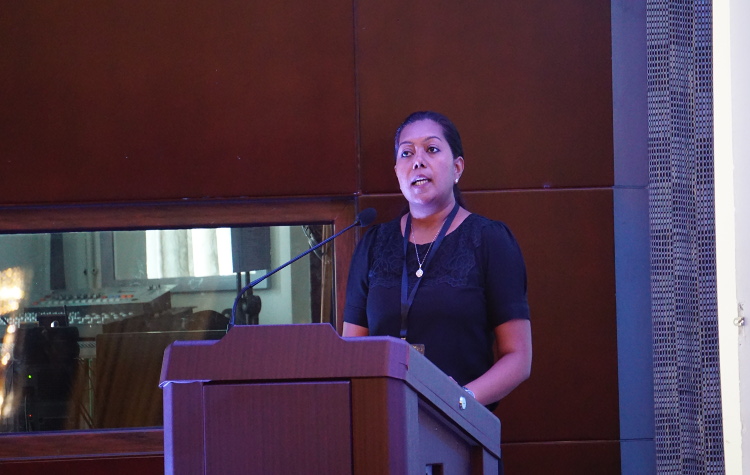 For this e-newsletter, ANNI interviewed Shahindha Ismail, who is the founder and current Executive Director of the Maldivian Democracy Network (MDN). MDN is a non-partisan NGO which aims to promote human rights and the values and principles of democracy in the Maldives. Shahindha is a human rights defender and is one of the few defenders against religious fundamentalism in the Maldives. This interview focuses on her experiences and involvement with National Human Rights Institutions (NHRI) and ANNI as a woman human rights defender.
For this e-newsletter, ANNI interviewed Shahindha Ismail, who is the founder and current Executive Director of the Maldivian Democracy Network (MDN). MDN is a non-partisan NGO which aims to promote human rights and the values and principles of democracy in the Maldives. Shahindha is a human rights defender and is one of the few defenders against religious fundamentalism in the Maldives. This interview focuses on her experiences and involvement with National Human Rights Institutions (NHRI) and ANNI as a woman human rights defender.
As a woman human rights defender (WHRD), how did you become involved with ANNI?
I am honoured to have been among the first group of human rights defenders (HRDs) to initiate the ANNI. I believe it was one of the best decisions of FORUM-ASIA to focus on the performance of National Human Rights Institutions (NHRIs) in Asia and through the same process encourage states without NHRIs to form one. As a participant in the earlier efforts to assess NHRIs and develop a mechanism to improve the work of the NHRIs, I also supported the idea of ANNI and have been participating in the process since then.
In your perspective, how important it is for NHRIs to concern about WHRDs? What can NHRIs do to protect WHRDs, for instance, how would an efficient NHRI impact the protection of WHRDs?
One of the consistent recommendations that ANNI has made to NHRIs is to have a special focus on W/HRDs. Given the trends of threats against W/HRDs and how WHRDs are singled out and made further vulnerable in all parts of the world, I feel that NHRIs must focus on the work of WHRDs to be able to protect and promote their work. The support of a NHRI in the work of WHRDs will provide a form of shelter and encouragement for women to engage in their areas of work, especially knowing that a redress mechanism and protection mechanism exist close to home. It will also undoubtedly benefit the work of NHRIs in identifying and partnering with grassroots activists where institutionally it may not be easy to reach. It is very important that NHRIs engage with and listen to WHRDs in designing their work.
What do you think can be done in the future to strengthen the ANNI network regarding the issue of WHRDs? How do you think it is important for ANNI members to connect and work together on the issue?
In recent years ANNI has moved towards a special focus on WHRDs. The assessments have taken a closer look at the situation of women and WHRDs in relation to the work of the NHRIs, and I think it is something that ANNI can build on and strengthen. It is vital that ANNI holds consultations with WHRDs to better understand how ANNI and WHRDs can collaborate in their work in order to bring a better focus to their efforts through NHRIs.
In your experience, what are the main challenges for civil society organisations (CSOs) and NHRIs in working together on the issue of WHRDs? What would be your recommendations to overcome these challenges?
I believe that a common issue of women having to constantly prove themselves in their areas of work is similar to WHRDs in Asia, whether it is a CSO or NHRI, and we need to find a way to move beyond that. WHRDs have achieved great successes in Asia and around the world, and perhaps this is not commonly known. WHRDs continue to work in extremely risky and volatile environments, overcoming daily challenges and achieving goals for the betterment of the rights of people around the world. It must be acknowledged and more girls and women should be introduced to the area of human rights.
Throughout the years of your extensive work experience, what has been the philosophy underlying your advocacy for the protection of WHRDs?
My experience has been that while women and men face challenges and risks in their work to protect the human rights of others, certain types of threats and risks are faced by women. Some of the WHRDs that I have worked with have shown that regardless of this situation they continue to fight and care for the rights of everyone equally. The way I see it, treating W/HRDs equally means taking the context of every one of their work into consideration. This way no one is left behind. No one must be left behind.


